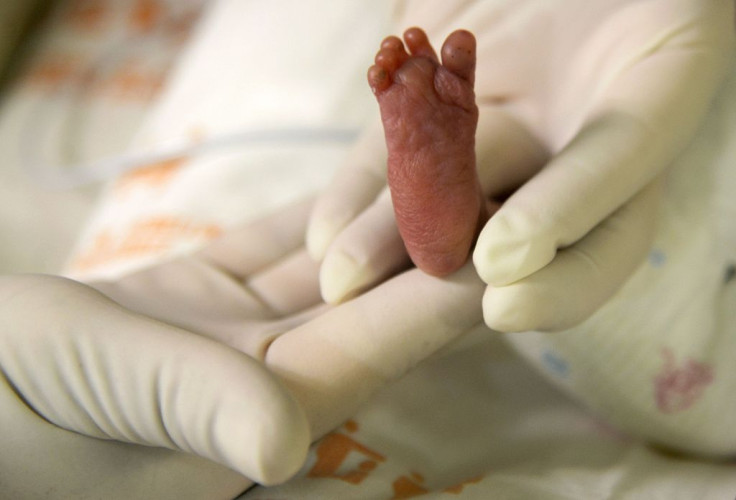Artificial Placenta Could Save Lives Of Premature Babies; We’re Closer Than Ever To Making One

Although life may begin in the womb, it’s the placenta that really preserves it. Children who are born prematurely and torn away from the placenta too early often face a number of health issues such as stunted growth, communication delays, and of course, death. For these reasons, doctors have spent years working to create an “artificial placenta” that offers premature babies the same nurture and protection that they get in their own mothers’ bodies. Recently, researchers from the University of Michigan came closer than ever to turning this dream into a reality.
The placenta is a temporary organ that only develops in the uteruses of pregnant women, and it’s expelled from the body once the child is born. Still, despite it’s short lifespan, the organ plays a vital role in pregnancy and fetal health by providing the growing baby with nutrients and removing wastes.
After five years of research, scientists at UM successfully used an artificial placenta prototype to keep extremely premature lambs alive for a week. Although the project is not yet ready to be tested on human babies, researchers said in a press release that the success with the lamb trial was enough for the National Institutes of Health to fund the project with a major grant.
The idea behind the artificial placenta is simple: Instead of treating premature babies like extremely young infants, treat them as if they were still fetuses. The technology works by simulating the intrauterine environment; it allows the premature babies to circulate oxygen and get rid of carbon dioxide in their bloodstream without ever having to take their first breath, Futurity reported. The hope is that by recreating the environment of a mother’s body, doctors can give severely premature babies a better chance at developing normally on the outside.
“With a better understanding of the physiology of prematurity and advanced technology, we are now in a position to bring this innovative approach envisioned five decades ago to fruition,” said Dr. Robert Bartlett, a professor emeritus of pediatric surgery, in a recent statement.
The average pregnancy lasts 40 weeks and, according to The March of Dimes, a premature baby is one who is born before the 37-week mark. Around one in 10 babies born in the United States each year are premature and worldwide, around one million babies die due to premature birth. This makes it the leading cause of death in children under the age of 5. Those who survive preterm delivery face a number of serious health risks, such as breathing problems, bleeding in the brain, and serious infections. Those who also go on to survive past infancy may go on to develop developmental and communication issues later in life. For example, research has found that extremely preterm babies born at 28 weeks struggle with school performance and adult life.
While it may be some time before the artificial placenta is available for use, recent research from Stanford University Medical Center found that steroid treatment in extremely premature babies may help to prevent some of the most severe health risks, such as brain hemorrhaging. Although steroids are often given to mothers who are in preterm labor, this study was the first to show that steroids could work on infants born as early as 24 weeks — a demographic previously deemed too young to qualify for the treatment.
Published by Medicaldaily.com



























